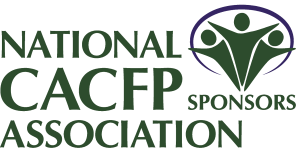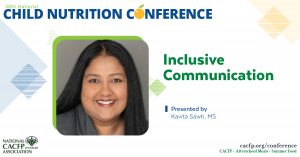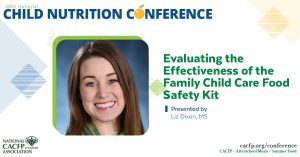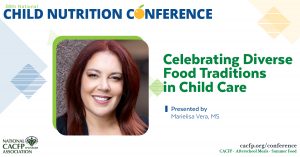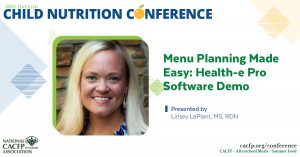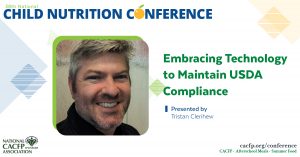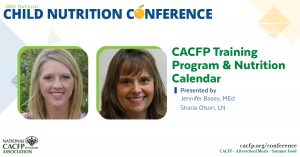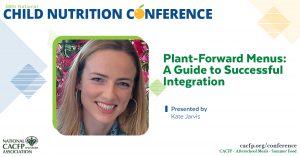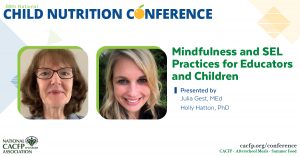2024 NCNC
Inclusive Communication
Effective communication is the cornerstone of building inclusive and diverse communities and workplaces. Learn to enhance your communication skills, which will enable you to connect with diverse audiences and create an environment where everyone feels heard and valued.
Read MoreEvaluating the Effectiveness of the Family Child Care Food Safety Kit
Nutritious food is ineffective if made unsafely. The Institute of Child Nutrition (ICN) designed the Family Child Care Food Safety Kits with input from family child care stakeholders to create a tangible resource to help providers adopt food safety behaviors. Since 2021, ICN has distributed over 17,000 kits to 53 states and territories. Discover the effectiveness of the kits for family care care providers.
Read MoreCelebrating Diverse Food Traditions in Child Care
Nutrition plays a vital role in the development of a child and their individual cultural backgrounds make them who they are. Explore the importance of cultural awareness and discover ways to honor and celebrate the diverse food traditions of the children in your care.
Read MoreUsing Go NAPSACC to Support State and Local Program Level CACFP Efforts
Go NAPSACC is an online tool that can help child care programs in your state elevate nutrition practices including meeting the CACFP meal pattern requirements. Get an overview of this easy-to-use tool, its training and education opportunities, resources available to help child care programs meet nutrition goals, and how your state can use it to support its child care programs.
Read MoreMenu Planning Made Easy: Health-e Pro Software Demo
Health-e Pro software offers nutrient analysis, menu planning, and online publishing. Color-coding makes meal planning easy while maintaining compliance. Standardized recipe building is simple with 5,000 pre-loaded products and recipes in the software. Easily plan compliant menus for CACFP, SBP, NSLP, SFSP and Smart Snack standards.
Read MoreEmbracing Technology to Maintain USDA Compliance
Do you get frustrated or overwhelmed with the amount of time spent on meal planning, which takes away from your focus on improving children’s lives? Utilizing data creates endless options, but only a few will generate reimbursement. Technology doesn’t just save you time, it can also help you increase revenue.
Read MoreCACFP Training Program & Nutrition Calendar
Where else can you find nutrition information, CACFP best practices, table crafts, physical activities, business tips, provider training modules, parent provider connection letters, child care curriculum, and record keeping all in one place? NCA’s Nutrition Calendar & Training Program is perfect for providers, centers and afterschool sites. The 56-page calendar record keeping system and 5-hour training program is available in bulk for less than $4 per provider.
Read MorePlant-Forward Menus: A Guide to Successful Integration
There’s never been a better time to add more plant-based options to your program’s menu! The Forward Food Collaborative has been supporting institutions around the country in creating healthier, more sustainable plant-forward menus by offering culinary trainings, educational webinars, greenhouse gas assessments, marketing materials, and more. Learn how you can use these tools to support your program.
Read MorePartnering with Cooperative Extension to Improve Eating Patterns
It takes a village to feed young children, but where do we find them? Discover how to find Cooperative Extension resources to improve the dietary quality of young children. Get strategies for building successful partnerships and learn how Cooperative Extension can support your CACFP team and maintain your bottom line.
Read MoreMindfulness and SEL Practices for Educators and Children
Mindful practice supports an educator’s ability to grow self-awareness, recognize how emotions and thoughts contribute to interactions with others, and respond to children with compassion. Explore mindful practices and social-emotional learning (SEL) for educators and children to promote a caring, equitable ECE community.
Read More